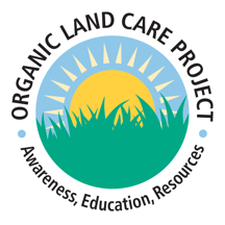Best Management Practices as defined by Rutgers University
• Regular soil testing,
• The addition of approved materials for soil fertility and amendment as necessitated by soil test results,
• Selection of plantings using criteria of hardiness; suitability to native conditions; disease and pest resistance; and ease of maintenance,
• Modification of outdoor management practices to comply with organic horticultural science, including scouting, monitoring, watering, mowing, pruning, proper spacing, and mulching,
• The use of physical controls, including hand weeding, and over seeding,
• The use of biological controls, including the introduction of natural predators, and the enhancement of the environment of a pest’s natural enemy,
• Through observation, determining the most effective treatment time, based on past biology and other variables, such as weather and local conditions,
• Eliminating pest habitats and conditions supportive of pest population increases.
Additional Resources for organic landscaping Best Practices:
Rutgers University, Organic Land Care Best Management Practices
Northeast Organic Farming Association (NOFA): Standards for Organic Land Care: Practices for the Design and Maintenance of Ecological Landscapes
Harvard University, Organic Maintenance Program
Organic Landscape Association Guiding Principles
University of Connecticut: Best Management Practices for Pesticide-Free, Cool Season Athletic Fields
Return to Resource Library
• Regular soil testing,
• The addition of approved materials for soil fertility and amendment as necessitated by soil test results,
• Selection of plantings using criteria of hardiness; suitability to native conditions; disease and pest resistance; and ease of maintenance,
• Modification of outdoor management practices to comply with organic horticultural science, including scouting, monitoring, watering, mowing, pruning, proper spacing, and mulching,
• The use of physical controls, including hand weeding, and over seeding,
• The use of biological controls, including the introduction of natural predators, and the enhancement of the environment of a pest’s natural enemy,
• Through observation, determining the most effective treatment time, based on past biology and other variables, such as weather and local conditions,
• Eliminating pest habitats and conditions supportive of pest population increases.
Additional Resources for organic landscaping Best Practices:
Rutgers University, Organic Land Care Best Management Practices
Northeast Organic Farming Association (NOFA): Standards for Organic Land Care: Practices for the Design and Maintenance of Ecological Landscapes
Harvard University, Organic Maintenance Program
Organic Landscape Association Guiding Principles
University of Connecticut: Best Management Practices for Pesticide-Free, Cool Season Athletic Fields
Return to Resource Library

